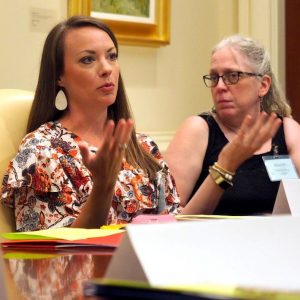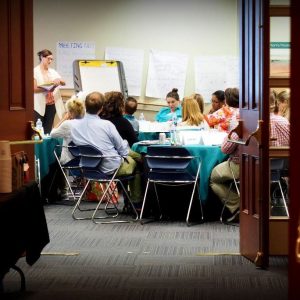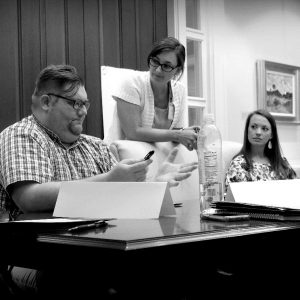Research Priorities
Our project team held three community meetings to listen and learn about research priorities from different stakeholder groups on the topic of community participation, health and well-being for individuals with intellectual and developmental disabilities
A Toolkit to Engage People with Intellectual and/or Developmental Disabilities and Allies in Virtual Pre-research and Research Activities
ANNOUNCEMENT
We are pleased to announce that we have been awarded an additional award from PCORI to expand our regional network and meetings to the Southwest and Midwest.
To read more about our project goals please go the following link:
https://www.pcori.org/research-results/2020/engage-all-abilities

Philadelphia, Pennsylvania
Seattle, Washington
Augusta, Georgia
People who attended our meetings
- Individuals with intellectual and developmental disabilities (self-advocates)
- Family members
- Rehabilitation providers-occupational therapists and physical therapists
- Community organization representatives from: faith organizations, afterschool programs, sports and recreation programs, cultural arts, public library, public transportation, and disability service/advocacy organizations
- Researchers



People told us these topics should be research priorities
- Measuring Success. When community organizations use so-called best practices to get people to participate, how do we measure success?
- Mentoring for Organizations. When an organization wants to change and begin including individuals with ID/DD and families in their programs, how does working with a mentor support that?
- Trained Transportation. If transportation partners, like bus drivers or Uber drivers, were trained to support individuals with ID/DD and families, would that make participating in the community easier?
- Information Access. How would getting information through technology, like smart phones and internet sites like Facebook, support participating in the community?
- Brand Promise. Would community participation increase if there were a logo or brand that told you that an organization knows how to support the needs of individuals with ID/DD?
- Advance Support. To make community participation less stressful or more engaging for those with ID/DD, what types of support do organizations need to provide in advance?
What people told us was important to measure
- Social engagement in peer relationships and in friendships in school and/or the community.
- Feelings of belonging to a larger group or community.
- Community connectedness-feeling like its “worth it” to get out of the house and take part in an event or activity.
- Excitement and motivation-looking forward to and/or preparing for an event.
- Resilience an individual, caregiver or family’s perseverance, tenacity, fortitude, or willingness to try something again.
- Cheerfulness or happiness positive feelings about going out and/or doing the activity.
- Feeling in control about going out and doing activities in the community.
- Taking part in related activities-doing other activities on an outing such as going to a store, going to a park, or having a meal in a restaurant.
- Social media connections and relationships.
- Feelings of safety before, during and after an event or activity.
This project was funded through the
Patient-Centered Outcomes Research Institute® (PCORI®)
Eugene Washington PCORI Engagement Award (EAIN# 5694).
The views presented in this website are solely the responsibility of the project members and do not necessarily represent the views of the Patient-Centered Outcomes Research Institute ® (PCORI®), its Board of Governors, or Methodology Committee.
